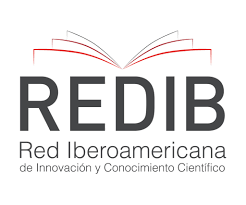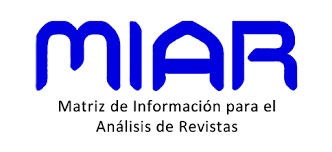Cuadernos de pensamiento is the Journal of the "Ángel González Álvarez" Thought Seminar, of the Fundaci´on Universitaria Española. Since 1987 it collect in its pages the results of the research of numerous spanish and foreign authors. It is published annually. Its objective is the investigation and dissemination of philosophical, legal, political and humanistic thought, from a multidisciplinary perspective. It is aimed at specialists in philosophical research, professors and students of philosophy and humanities. Only publish original articles. International researchers will find in it a reference point of the best in academia.
Archives
-

No. 38 (2025): Monograph on Edith Stein: Philosophy of Education
No. 38 (2025)Nos complace presentar este volumen número 38 de la revista Cuadernos de Pensamiento, sobre Edith Stein: Filosofía de la educación, que reúne una serie de estudios de expertos de la Edith Stein-Forschung del ámbito internacional. Desde la filosofía de la educación de Edith Stein (1891-1942), se exploran aspectos esenciales como el sentido de la educación ante el crecimiento exponencial de las ofertas de diversa índole de metodologías educativas; el dilema de la posibilidad de la formación integral pareja con la excelencia en un dominio concreto; la resiliencia; la educación en el marco del paradigma tecnocrático; el liderazgo educativo o la comunidad como concepto clave de la filosofía política y educativa steiniana.
La sección de estudios de miscelánea enriquece el diálogo filosófico, pues se abordan aportaciones filosóficas de autores como Karol Wojtyla, y se reflexiona a fondo acerca del sentido antropológico de la relación estomatólogo-paciente o de la universidad. Finalmente, las reseñas de obras recientes invitan al lector a adentrarse en la lectura de obras clave.
Charlie Jorge Fernández, Universidad de las Islas Baleares
Miriam Ramos Gómez, E.U. Fray Luis de León, Valladolid
Ana Villazán Gutiérrez, E.U. Fray Luis de León, Valladolid
Coordinadores
-

Cuadernos de Pensamiento. Monograph on Human Interiority. Presence, Conscience and Education
No. 37 (2024)We are pleased to present this Volume 37 of the journal Cuadernos de Pensamiento, on Human Interiority: Presence, Consciousness, and Education, which brings together a series of monographic and miscellaneous studies addressing fundamental topics in contemporary philosophy. In the monographic section, we explore the complex subject of interiority and self-consciousness from various perspectives. From reflections on self-knowledge in the thought of Brentano to a philosophical analysis of the crossing of gazes, each article invites a deeper understanding of the nature of subjectivity and the relationship with the other. Notable contributions also include discussions on the depersonalization of the body and the importance of the maternal perspective in understanding interiority.
The miscellaneous studies section enriches the philosophical dialogue, addressing topics such as the environmental crisis, Edith Stein's anthropology, and the relationship between empathy and the concept of person. Finally, recent book reviews are included, inviting reflection on contemporary culture and the ethical challenges we face.
Miriam Ramos Gómez, E.U. Fray Luis de León, Valladolid
María Luisa Pro Velasco, Universidad Católica de Ávila
Coordinators -

Cuadernos de Pensamiento. Monograph on Humanism Technology and Digital Transformation
No. 36 (2023)We present the new issue of "Cuadernos de Pensamiento", dedicated to the theme "Humanism, Technology, and Digital Transformation." With this, we continue to delve into the focal point of the previous volume. On this occasion, we address fundamental problems in the philosophy of science examined from an anthropological perspective, such as the question of scientific reductionism, the relationship between human progress and the exploitation of nature, and the "technification" of femininity.
Historical-philosophical studies are found in contributions dedicated to examining the principle of convenience in the context of Lullian work, the contribution of Renaissance authors to the conception of reading in connection with digital literacy, and the place of Christianity in the preservation of scientific knowledge. Finally, ethical and educational studies tackle issues related to comprehensive education, learning communities, and the digital divide.
We also inaugurate our miscellaneous section, which includes articles on neuroscience and morality, Ernst Jünger's anthropotechnology, the meaning of suffering, the biological precursors of ethics and religion according to Antonio Damasio's conception, and the philosophy of education of Edith Stein.
Miriam Ramos Gómez, E.U. Fray Luis de León, Valladolid
María Luisa Pro Velasco, Universidad Católica de Ávila
Coordinators -

Cuadernos de Pensamiento. Monographic on Humanism and technique. Volume 1
No. 35 (2022)Since modernity, the consecration of the Baconian maxim "knowledge is power" as the motto of progress, inevitably led to the supplanting of technique by knowledge as the main value that has structured life and societies ever since. The influence of the paradigm shift is the backbone of school and university education of our time, as well as the anthropological and political conception that is the foundation of our current worldview. Consequently, voices have been raised from different spheres that seek to rescue man, forgotten under the product that comes out of his hands, and recover knowledge eclipsed before the authority that inspires scientific-technical hegemony.
For this reason, this issue aims to address the relationship between humanism and technology from different approaches. Thus, from a systematic point of view, technique and its relationship with four essentially human aspects are studied: the meaning of life, beauty, education and power. Regarding power, the inescapable political question of technocracy is dealt with specifically in several articles. Likewise, historical-philosophical contributions trace the approach to our object of study in authors such as Ramon Lull or Neil Postman. Finally, ethical and anthropological reflection, transversal in most of the contributions, shines with special force when dealing with the question of technique as a factor of dehumanization or liberation.
Miriam Ramos Gómez
Escuela Universitaria Fray Luis de León, Valladolid (España)
CoordinadoraRafael Fayos Febrer
Universidad Cardenal Herrera-CEU, CEU Universities, Valencia (España)
Coordinador -

Cuadernos de Pensamiento. Monographic issue on women and social change
No. 34 (2021)This issue considers the role of women in today's society and what they have to contribute. This analysis cannot be carried out without also rethinking what is also the role of men. Once the old clichés that took the man out of the family and confined the woman to the domestic sphere have been overcome, after the incorporation of women into the public and social space, it is necessary to rediscover the contribution of people in the construction of a rich and fruitful community that welcomes differences and enhances the development of people from a constructive relational perspective.
-

Cuadernos de pensamiento. Número monográfico sobre Karol Wojtyla/san Juan Pablo II en el centenario de su nacimiento. Volumen 2.
No. 33 (2020)In this monographic issue, divided into two volumes, we remember John Paul II with immense gratitude on the occasion of the centenary of his birth. As some of the authors who write in it point out, it is not about doing an exercise in memory but about interpreting their legacy, the living heritage that is present among us. The perspective of Saint John Paul II has the force of innovation that is born from within and that is capable of “inventing” in the face of new situations. He understood clearly that the underlying question is the truth, and that authentic fidelity to the Gospel consists in drawing out of it that treasure of novelty in response to the historical events that we have to live.
-

Cuadernos de pensamiento. Número monográfico sobre Karol Wojtyla/san Juan Pablo II en el centenario de su nacimiento. Volumen 1.
No. 32 (2019)In this monographic issue, divided into two volumes, we remember John Paul II with immense gratitude on the occasion of the centenary of his birth. As some of the authors who write in it point out, it is not about doing an exercise in memory but about interpreting their legacy, the living heritage that is present among us. The perspective of Saint John Paul II has the force of innovation that is born from within and that is capable of “inventing” in the face of new situations. He understood clearly that the underlying question is the truth, and that authentic fidelity to the Gospel consists in drawing out of it that treasure of novelty in response to the historical events that we have to live.
-

Cuadernos de pensamiento
No. 31 (2018)In this themed issue we reflect on Europe. In its pages, more than ten authors, lawyers, political scientists, historians, and philosophers analyze different aspects of Europe’s present and its past. Among the themes explored are the contemplative attitude that made it possible in the past for Europe to be the stage of a major cultural development; the "disenchantment of the world" as a diagnosis of the social situation at the beginning of the 20th century; the notion of consensus proposed by Jürgen Habermas to alleviate the political challenge of pluralism in modern democracies; the existential crisis of the European Union, so evident that even politicians and analysts with opposite ideological backgrounds agree on its diagnosis, and on the urgent need for shock therapy; the deeply contradictory relationship between populism and democracy.These are some of the problems that Europe faces and they are approached in these pages from different perspectives, without forgetting the luminous and always current testimony of great Europeans, such as Edith Stein, Romano Guardini or Teresa of Ávila.















1.png)
1.png)

1.png)





.png)
.png)

.png)
1.png)
1.png)
